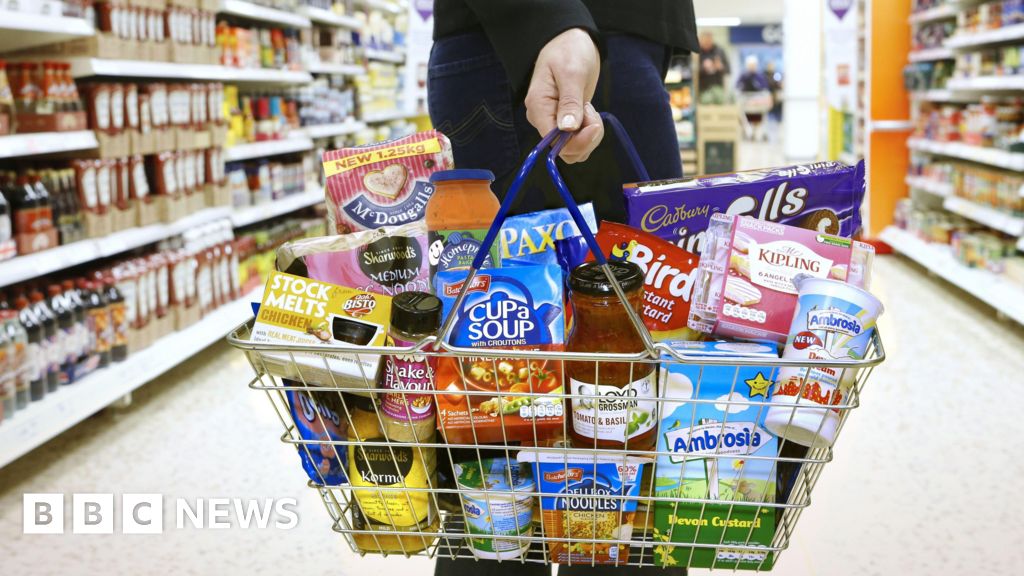ARTICLE AD BOX
image sourceEPA
image captionSupermarkets have been struggling with empty shelves amid the "pingdemic" and supply problemsStaff and supply shortages have taken their toll on the UK's economic recovery this month, according to a closely watched survey.
The IHS Markit/CIPS Composite Purchasing Managers' Index (PMI) for August hit a six-month low of 55.3, falling from 59.2 in July.
Any reading above 50 indicates growth, but the bounce-back from the pandemic is losing momentum, said researchers.
CIPS group director Duncan Brock said the figures were "a stark warning".
He said the "abnormally large slowdown in overall activity" suggested that the accelerated levels of growth seen earlier in the summer were "not sustainable".
"The worst shortages of staff and materials on record are mostly to blame," he added.
"Despite Covid-19 containment measures easing to the lowest since the pandemic began, rising virus case numbers are deterring many forms of spending, notably by consumers, and have hit growth via worsening staff and supply shortages," said IHS Markit economist Chris Williamson.
"Supplier delays have risen to a degree exceeded only once before - in the initial months of the pandemic - and the number of companies reporting that output had fallen due to staff or materials shortages has risen far above anything ever seen previously in more than 20 years of survey history."
Self-isolation
Firms have complained that self-isolation requirements for contacts of people with Covid have made it hard for them to maintain staffing levels.
However, those rules were dropped from 13 August for people who have been doubly vaccinated.
Kieran Tompkins, assistant economist at Capital Economics, said the latest survey showed that the recovery was slowing more than previously thought.
"The economy struggled to gain fresh momentum in August, despite the apparent easing of the 'pingdemic'," he said.
This posed "a downside risk" to forecasts that the economy would return to its pre-pandemic level by October, he added.
Meanwhile, another survey showed manufacturing output growth easing in the three months to August, but remaining firm by historical standards.
However, stock levels weakened to a new low for the third consecutive month, according to the latest monthly CBI Industrial Trends Survey.
"Early signs from the data suggest that growth in activity may have peaked," said CBI lead economist Alpesh Paleja.

 3 years ago
136
3 years ago
136








 English (US) ·
English (US) ·